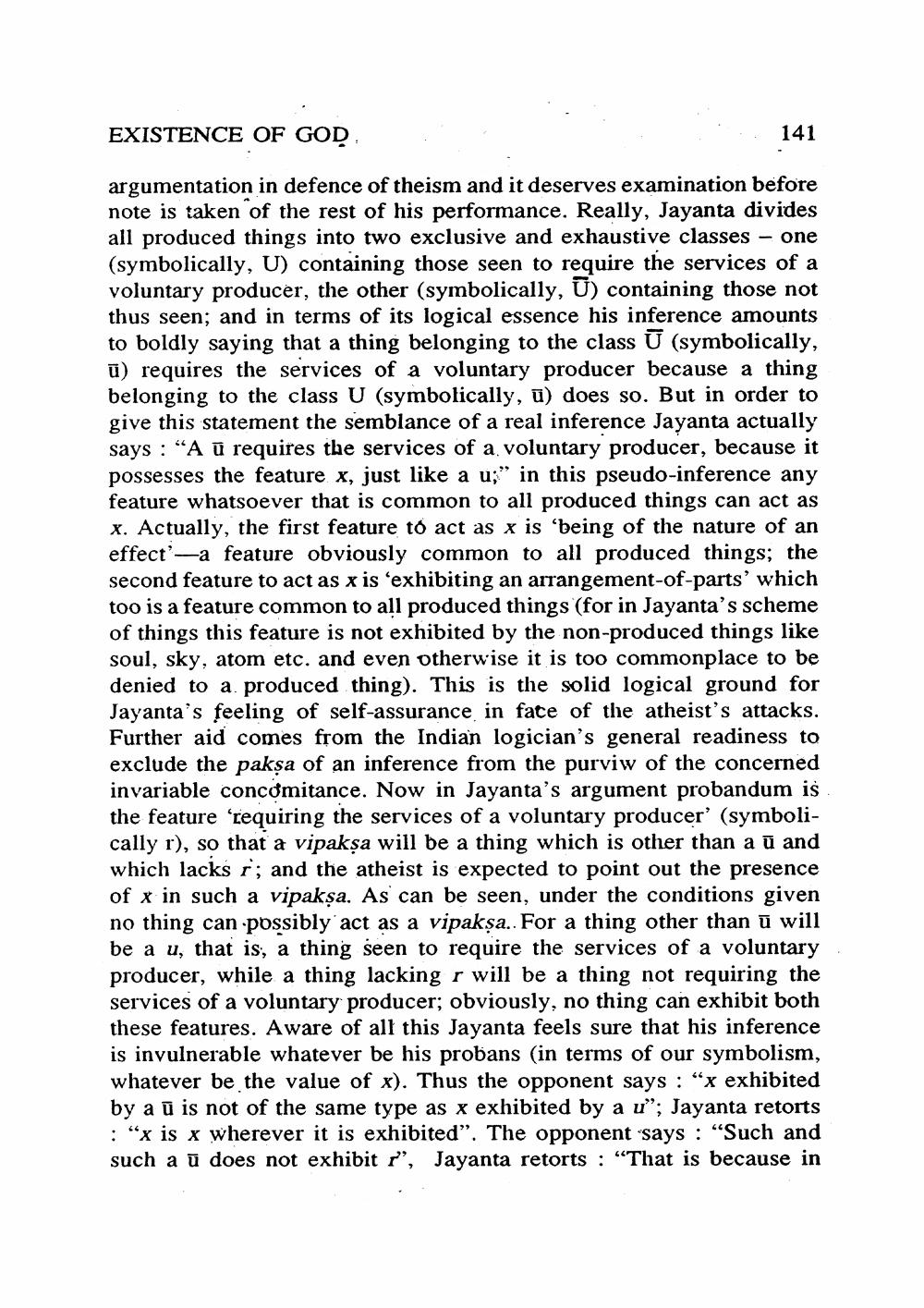________________
EXISTENCE OF GOD
141
argumentation in defence of theism and it deserves examination before note is taken of the rest of his performance. Really, Jayanta divides all produced things into two exclusive and exhaustive classes - one (symbolically, U) containing those seen to require the services of a voluntary producer, the other (symbolically, U) containing those not thus seen; and in terms of its logical essence his inference amounts to boldly saying that a thing belonging to the class U (symbolically, ü) requires the services of a voluntary producer because a thing belonging to the class U (symbolically, ū) does so. But in order to give this statement the semblance of a real inference Jayanta actually says: “A ū requires the services of a voluntary producer, because it possesses the feature x, just like a u;" in this pseudo-inference any feature whatsoever that is common to all produced things can act as x. Actually, the first feature to act as x is ‘being of the nature of an effect—a feature obviously common to all produced things; the second feature to act as x is 'exhibiting an arrangement-of-parts' which too is a feature common to all produced things (for in Jayanta's scheme of things this feature is not exhibited by the non-produced things like soul, sky, atom etc. and even otherwise it is too commonplace to be denied to a produced thing). This is the solid logical ground for Jayanta's feeling of self-assurance in fate of the atheist's attacks. Further aid comes from the Indian logician's general readiness to exclude the paksa of an inference from the purviw of the concerned invariable concomitance. Now in Jayanta's argument probandum is the feature 'requiring the services of a voluntary producer' (symbolically r), so that a vipaksa will be a thing which is other than a ū and which lacks r; and the atheist is expected to point out the presence of x in such a vipaksa. As can be seen, under the conditions given no thing can possibly act as a vipaksa. For a thing other than ū will be a u, that is, a thing seen to require the services of a voluntary producer, while a thing lacking r will be a thing not requiring the services of a voluntary producer; obviously, no thing can exhibit both these features. Aware of all this Jayanta feels sure that his inference is invulnerable whatever be his probans (in terms of our symbolism, whatever be the value of x). Thus the opponent says: “x exhibited by a ū is not of the same type as x exhibited by a u"; Jayanta retorts : "x is x wherever it is exhibited”. The opponent says : “Such and such a ū does not exhibit r", Jayanta retorts : “That is because in




